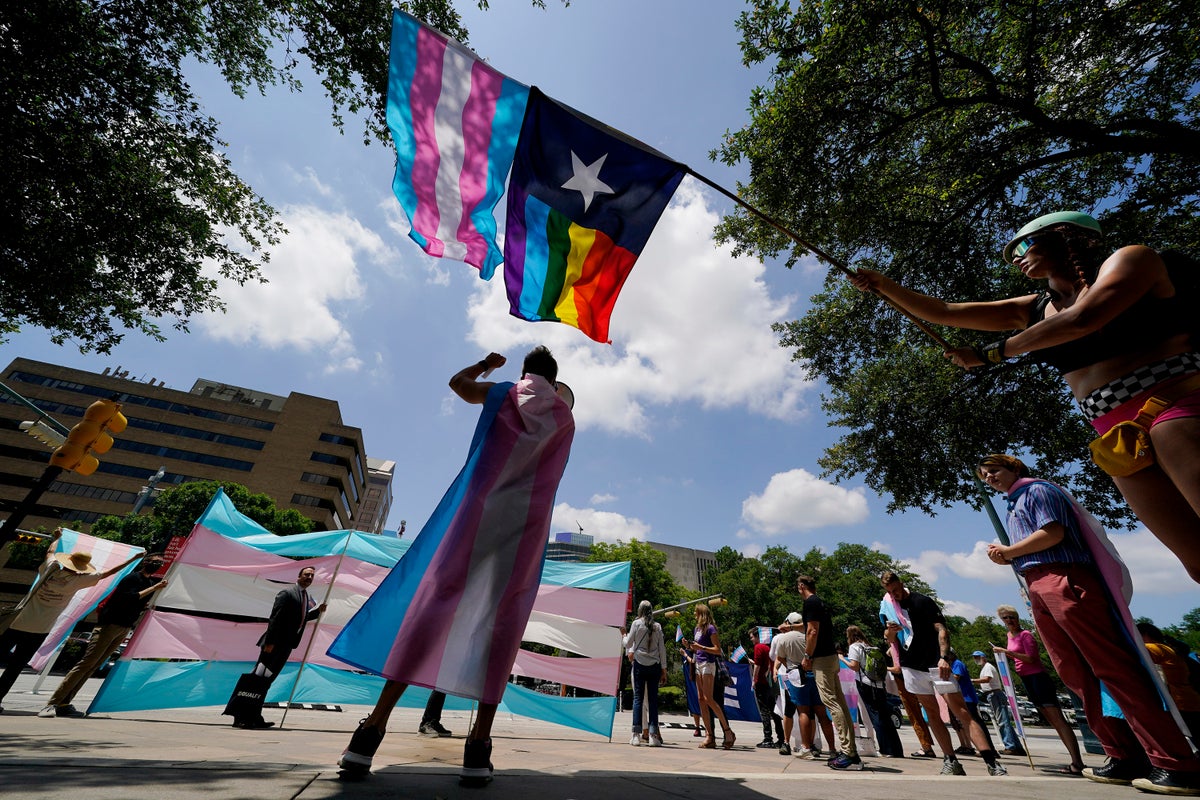
Medical providers and families with transgender children are suing the largest state with a ban on gender-affirming care for trans youth, a measure that would impact thousands of trans children with a potential ripple effect that could more broadly devastate healthcare for young non-trans patients and their families.
Texas – the second-largest state in the nation, home to thousands of young trans people – is preparing to enforce a law that would prohibit minors from accessing transition healthcare and force trans youth who are already receiving such care to de-transition.
The plaintiffs, which include families with five trans children and a coalition of LGBT+ advocates and civil rights groups, have argued that health providers face an “impossible” choice to break the law and lose their medical licenses or violate their oath and leave their patients behind.
The lawsuit filed in state district court in Travis County, home to the state’s capitol in Austin, argues that Senate Bill 14 violates the state constitution by infringing on parents’ autonomy over their children’s healthcare, discriminating against trans patients, and interfering with physicians’ rights by forcing doctors to disregard best practice clinical guidelines that could compromise the health of their patients.
Senate Bill 14 is scheduled to take effect on 1 September, joining more than a dozen states that have enacted laws or policies banning gender-affirming care for young trans people.
“Passing these laws sends a loud and clear message that you are not welcome here,” Lynly Egyes, the legal director for the Transgender Law Center, told reporters on 13 July.
Medical decisions regarding trans healthcare should not be made by “cruel government officials or politicians” who are “using trans youth as pawns,” she said.
“These families are courageously fighting for their freedom so they can be the best parents for their children,” she added. “Through this lawsuit we are making it clear … we will fight back and we will not be silenced. Let doctors be doctors and parents be parents.”
All major medical organisations support the use of puberty blockers and hormone therapy to treat gender dysphoria, treatments that are also regularly prescribed to cisgender people who are not targeted by gender-affirming care bans.
Texas families with trans children are considering whether to move out of state to continue their children’s care, decisions that are breaking some families apart or leaving families isolated in a state where care will soon be out of reach, according to Emmett Schelling, executive director of the Transgender Education Network of Texas.
“The cruelty is the point here. The cruelty is what’s driving this legislation, is what’s targeting trans people specifically, to have a large part of our healthcare that we depend on … stripped away,” he said.
“These decisions are made thoughtfully, intentionally, and in due time with parents, a child and a provider who has studied and educated themselves for years in practicing medicine,” he added. “Instead, we are hearing voices that are literally trying to rip away my humanity and the humanity of so many beautiful people from my community.”
Families are navigating how to maintain continuity of care for their children, or where they can go if they don’t have the resources or ability to travel to other states, many of which have imposed similar bans on affirming care.
Advocates fear that a “domino effect” will follow, as providers weigh whether to move their practice out of state and cut off access not only to affirming care for a relatively small pool of young trans patients but also healthcare for their non-trans patients.
“It’s been devastating,” Mr Schelling said. “I’ve spoken to so many families, so many community members who are literally just terrified, and for what reason? … It’s a situation no parent should be faced with … do I have to flee my home to make sure I am not targeted by my state leadership, but also so that I can live a happy, full life?”
Alex Sheldon, executive director of GLMA: Health Professionals Advancing LGBTQ+ Equality, said the group’s members are “being maligned not because of the quality of care they provide but because of who they provide care to.”
“Our members are telling us they’ll have to flee the state to keep their license,” with fears of a “mass exodus of health professionals” that will be felt throughout the state, they said.
The Independent has requested comment from the office of Texas Attorney General, which is named in the lawsuit.
Federal judges in five other states – Alabama, Arkansas, Indiana, Florida and Kentucky – have ruled that similar bans are likely unconstitutional. A decision in the Arkansas case permanently struck down that state’s law, the first ban on affirming healthcare for trans youth in the US, marking the first such ruling in the country after a weeks-long federal trial.
Last week, Republican-appointed judges on a federal appeals court in Tennessee allowed the state to enforce its gender-affirming care ban, the first time that a challenged law against gender-affirming care has taken effect while a series of legal challenges against similar bans play out across the country.
The Texas lawsuit is filed in state court, where plaintiffs are relying on the state constitution’s explicit protections for parents’ rights.
“SB 14 is arbitrary, irrational and oppressive,” said Paul Castillo, senior counsel with Lambda Legal. “Like we’ve seen in similar lawsuits already, we aim to stop SB 14 in its entirety.”







